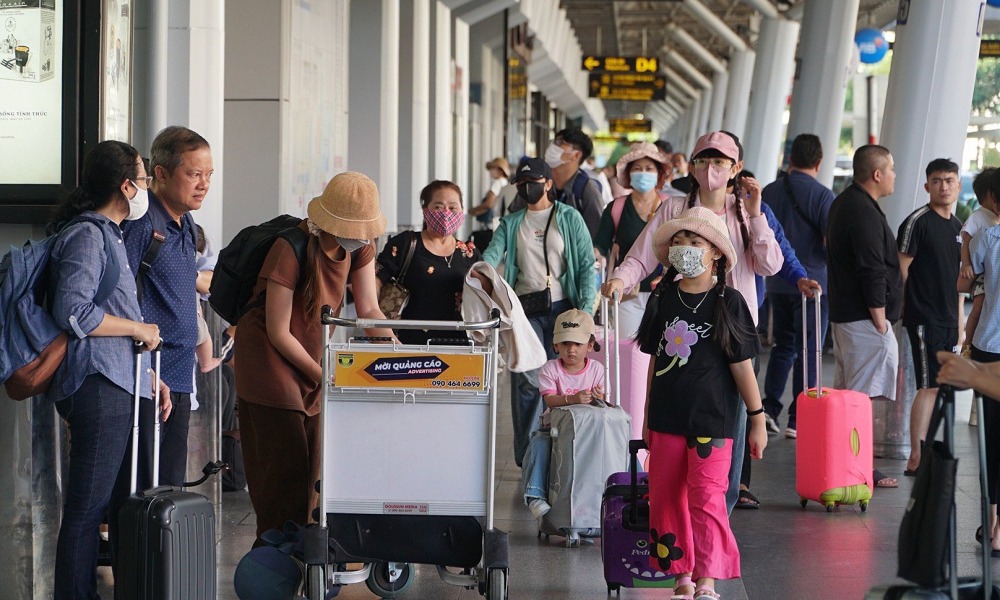The Rise of Carry-On Travel in Vietnam
Long waits at luggage carousels, the risk of damage to their baggage, and low-cost airlines’ strict rules are causing many people to fly with just cabin bags. This trend is becoming increasingly common, especially among frequent travelers and those who value convenience over extra space.
Le Phat Dat, a travel blogger who flies three or four times a month, says he doesn’t mind paying for check-in baggage on international flights, but usually carries his bag onboard on domestic trips. “The fee for checked baggage is not high, but waiting to pick it up wears me out,” he explains. For him, the hassle of collecting luggage after a long flight is often not worth the small savings.
Another blogger, Vinh Le, shares a similar sentiment. He recalls waiting for 45 minutes after a flight from Hong Kong to Ho Chi Minh City for his baggage, with staff offering neither an explanation nor an apology. Such experiences highlight the growing frustration among passengers regarding the lack of communication and support from airline staff.
Concerns Over Baggage Damage
The threat of damage to bags is also a concern for many passengers. Dat shared that his bag was once damaged, and he only received VND300,000 (US$11.40) in compensation. As a blogger, electronic devices are his most important items, and they cannot be checked in, so he often avoids checking in luggage altogether.
Many passengers choose to travel with only carry-on luggage to avoid high fees, especially on low-cost carriers. Budget airlines dominate the Vietnam domestic market and only allow seven kilograms of carry-on baggage free. Check-in baggage is payable, which can add up quickly, especially for those traveling frequently.
Hoai An of Hanoi recalls having to pay VND600,000 for two kilograms of excess hand baggage on a flight from Hanoi to Bangkok in 2023. Since then, she has always paid for check-in baggage while booking international flights, pointing out that the cost is twice as much if paid at the airport.
Disputes Over Excess Baggage
Excess baggage demands often lead to disputes at boarding gates, with passengers refusing to pay and criticizing airlines for being “rigid.” Nguyen Tien Dat, vice president of the Hanoi Tourism Association, said poor communication and inconsistent inspection practices harm some airlines’ reputations. He criticized the use of “market-like scales” for random checks, suggesting that airlines should use electronic scales and adopt a more relaxed approach if the excess is only one or two kilograms to avoid humiliating passengers.
“Many passengers feel uncomfortable being scrutinized at the boarding gate as if they were committing a crime,” he said. This kind of treatment can significantly impact customer satisfaction and loyalty.
The Impact of New Policies
The issue of carry-on baggage has gained attention online after Vietnam Airlines began charging for hand baggage that exceeds the prescribed size or weight from Nov. 3, citing “safety reasons and efforts to improve the passenger experience.” This move has sparked debates among travelers, who question the necessity of such charges and whether they truly enhance the overall travel experience.
As more passengers opt for carry-on bags, airlines are under pressure to find a balance between managing costs and maintaining customer satisfaction. While some may see these policies as necessary for operational efficiency, others view them as an added burden that could deter travel altogether.
In this evolving landscape, both travelers and airlines must adapt to new challenges and expectations. For passengers, the choice to carry on or check in luggage is no longer just about cost—it’s about convenience, safety, and the overall travel experience.
